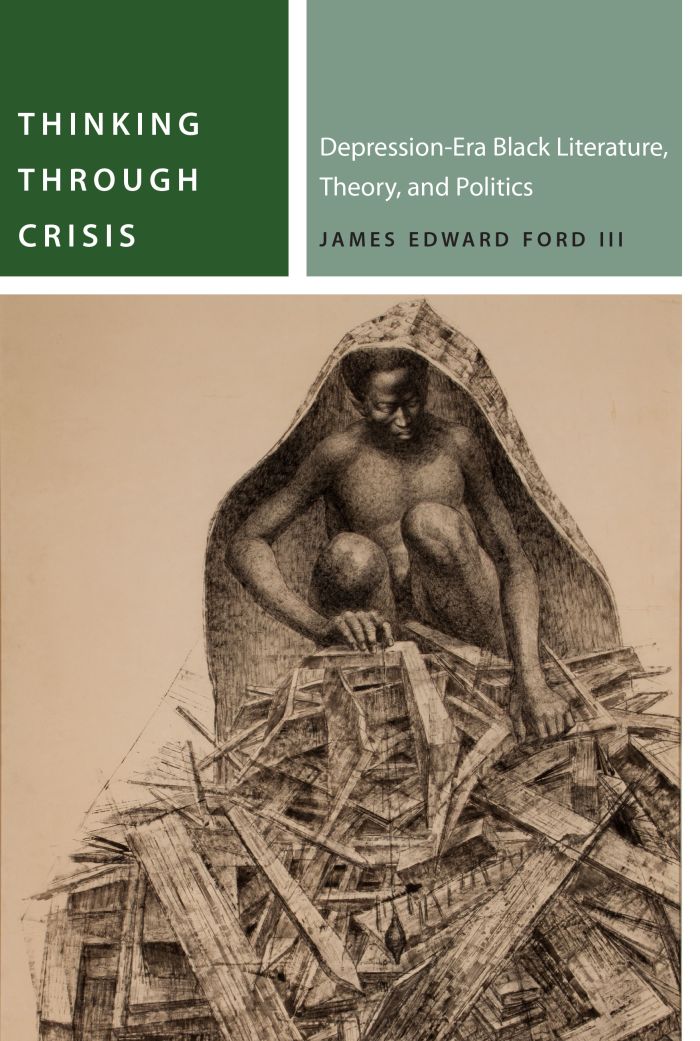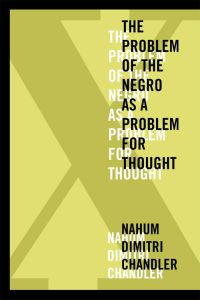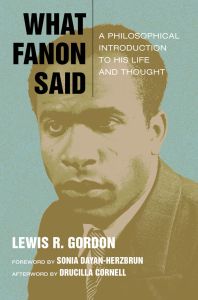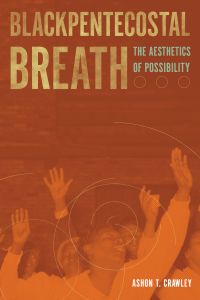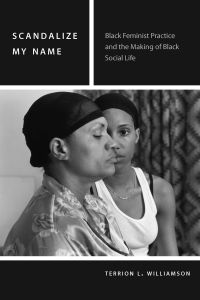Thinking Through Crisis
Depression-Era Black Literature, Theory, and Politics

This book can be opened with

Winner, 2020 William Sanders Scarborough Prize, Modern Language Association
Honorable Mention, MSA First Book Prize
In Thinking Through Crisis, James Edward Ford III examines the works of Richard Wright, Ida B. Wells, W. E. B. Du Bois, Zora Neale Hurston, and Langston Hughes during the 1930s in order to articulate a materialist theory of trauma. Ford highlights the dark proletariat’s emergence from the multitude apposite to white supremacist agendas. In these works, Ford argues, proletarian, modernist, and surrealist aesthetics transform fugitive slaves, sharecroppers, leased convicts, levee workers, and activist intellectuals into protagonists of anti-racist and anti-capitalist movements in the United States.
Thinking Through Crisis intervenes in debates on the 1930s, radical subjectivity, and states of emergency. It will be of interest to scholars of American literature, African American literature, proletarian literature, black studies, trauma theory, and political theory.
James Edward Ford's erudition is critical and compositional. Thinking Through Crisis teaches us to reread texts that are, now, in his placement of them alongside one another, emanations of a larger, refolded, unfolding topography of twentieth century radical thought. This is a welcome and unique accomplishment. Ford is a sharp and adventurous thinker and Thinking Through Crisis expresses his gifts with profound, difficult beauty.—Fred Moten, New York University
This is an excellent study of the exigencies of black politics during the Depression era. Highly recommended.—Choice
Thinking through Crisis. . . is a first-rate scholarly contribution to the ongoing effort to think the resistance of Blackness to its objectification.—Cultural Critique
Acknowledgments | ix
Introduction: From Being to Unrest, from Objectivity to Motion | 1
Notebook 1 Down by the Riverside: Richard Wright,
the 1927 Flood, and the Citizen-Refugee | 35
Notebook 2 “Crusade for Justice”: Ida B. Wells and
the Power of the Multitude | 74
Notebook 3 W. E. B. Du Bois’s Black Reconstruction:
Theorizing Divine Violence | 123
Notebook 4 Zora Neale Hurston’s Moses, Man of the
Mountain: An Anthropology of Power | 193
Notebook 5 The New Day: Notes on Education and
the Dark Proletariat | 244
Conclusion: From Being to Unrest, from Objectivity
to Motion—A Race for Theory | 291
Notes | 299
Index | 333

